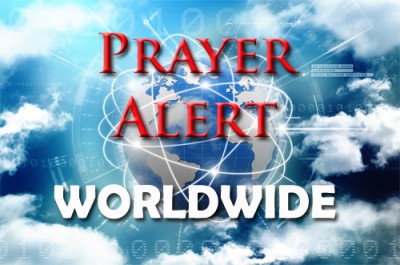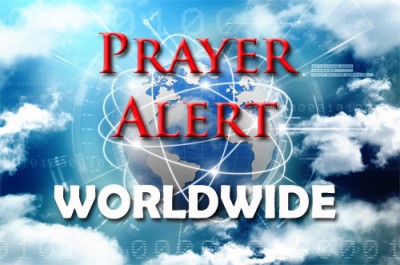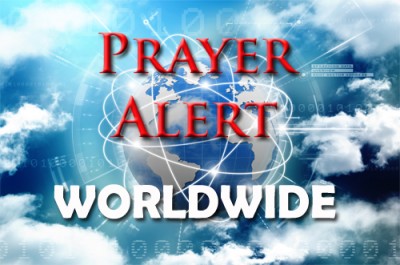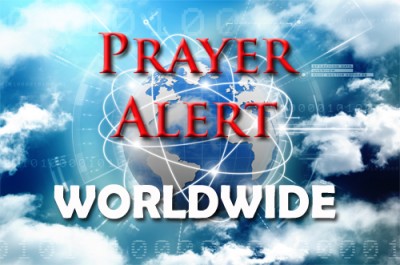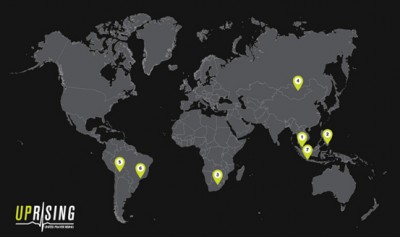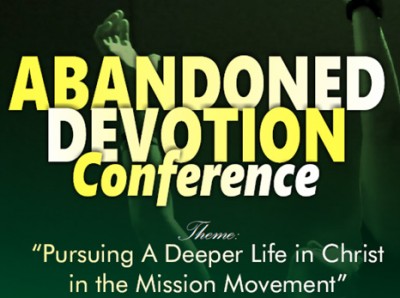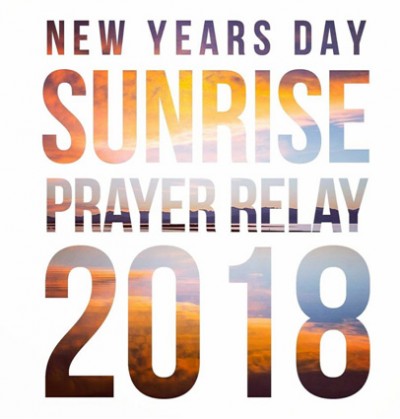Pakistan: a missionary’s message
01 Dec 2017‘Nawaz Sharif has been ousted from government several times, but he has returned to Pakistan, leaving his wife in an English hospital dying of cancer. The High Court ousted him on corruption charges, and he is banned from taking any political office; but his party (the major party) have changed the parliament’s constitution so that Nawaz can become its president. They also passed a stricter Islamic law, making it much harder for Christians and other minorities. The present temporary prime minister has little backing. There is no control in the country. Terrorists are crossing back and forward across the border. When US secretary of state Rex Tillerson came to meet Pakistan’s military on the Afghan situation, he was undercut by Pakistan’s government who demanded that he speak to it only. The military is held in favour by much of the populace.’
Global: Jehovah’s Witnesses
01 Dec 2017There are seven million Jehovah’s Witnesses in North America and Europe. They believe that Jesus is an inferior being, the Holy Spirit is simply a force of Jehovah, and that Jesus was resurrected in spirit, not in body. They trace their origin to Charles Taze Russell who believed that Christ’s second coming occurred in 1874. He spread his ‘New World Translation’ of the Bible and the Watch Tower magazine. Russell’s groups took the name Jehovah’s Witnesses in 1931 to reflect their proselytizing focus. Though Witnesses identify themselves as a part of Christianity, many Christians consider them a cult, associated with occasional inconvenient knocks on the door or groups on street corners offering literature. But they are God’s beloved, beautiful creations who are in need of the truth of Jesus Christ.
Zimbabwe: church leaders call for prayer
01 Dec 2017The country’s leaders of different denominations say Zimbabwe is between a crisis and a kairos opportunity. They are calling for prayer for, peace, respect for human dignity, a transitional government of national unity, and national dialogue. Their statement said, ‘The nation’s challenge is one of a loss of trust in the legitimacy of national processes. There is a strong sense that the hard-earned constitution is not being taken seriously. The wheels of democracy have become stuck in the mud of personalised politics where the generality of the citizenry plays an insignificant role, but we see the current arrangement as an opportunity for the birth of a new nation.’ The World Council of Churches is asking churches around the world to pray for Zimbabwe to embrace change and move forward without vengeance.
Egypt: mosque attack
01 Dec 2017The village where 305 worshippers were killed by Salafi militants on 24th November had been warned against hosting Sufi gatherings. Salafi Muslims follow an ultra-conservative Islam and believe Sufis are heretics. This attack, the worst in Egypt’s history, was the security forces’ second failure in five weeks, following 50+ policemen being killed in a Muslim Brotherhood militants’ hideout. After that incident President el-Sisi demoted his army chief of staff. Washington told el-Sisi that the Egyptian security forces’ preparedness was clumsy and predictable, saying that in the fight against terror and guerrilla groups quicker action is needed, combining precise intelligence and commando forces. The Egyptians are still very far from employing advanced methods; they responded to the attacks by bombing IS vehicles.
Bolivia UPRISING youth prayer assembly, Nov. 29th-December 2nd in Cochabamba- about 1000 are expected to take part from within Bolivia and from other nations of South America.
Please pray for His strong anointing on all who take part and especially for the organizers and speakers that this event will be powerfully used of the Lord to touch and transform many lives and the nations from which they come.
For more information, see this website http://uprisingbol.pdlanzas.org/index.php/english
Global UPRISING planning process for a World Youth Prayer Assembly in October 2018- Please pray with us in the IPC and our colleagues in this youth prayer movement that arrangements will come together well for this epic event to be held in Jakarta, Indonesia.
Pray that local leaders will fully get on board and that the planning meetings in January will be effective. We will need His funding breakthrough as well.
“If you are a Christian leader, you would undoubtedly be blessed at this conference!
The deepening of the spiritual life, and it’s resulting vitality, is a keynote message that the Holy Spirit is trumpeting throughout the earth today.” - Edmund Chan Leadership Mentor, Covenant EFC, Singapore/Founder, Global Alliance of IDMC
Focus areas include:
* Abandoned Devotion to Jesus - The Key To Fulfilling The Great Commission
* Being Saturated with the Powerful Presence of God
* Pursuing the fullness of the Spirit: The Divine Factor in Mission
* The Surrendered Life: The Indispensable Factor in Mission
* Enjoyable Prayer To Fuel Mission
* Becoming Bible-Centered Leaders in The Great Commission
Speakers include:
Dr. ThuoMburu (Kenya)
Remo Paul (India)
Graham Wells (USA)
Joel Iyorwa (Nigeria)
Kelly Shaw (Thailand)
Ryan Shaw (Thailand)
Worship by Julio & Noemi Vallejos (Argentina)
Find all Conference info and register at www.svm2.net
Or contact Rita Chiu +66-99-371-5531 Email: This email address is being protected from spambots. You need JavaScript enabled to view it.
With only 31 days till 2018 it is time to begin preparing to start the New Year off with a wave of prayer around the nations.
We invite our brothers and sisters in Christ, prayer groups, and churches to join us all over the world to pray at sunrise on New Year's Day 2018 at a public location like a hill, lookout or landmark in your city or town.
Register your 'Public' or 'Private' and join the Facebook Event and let's get the conversation started. http://www.sunriseprayerrelay.org/
Invite your friends, prayer groups and churches to join in the New Year's Day Sunrise Prayer Relay and together let's start 2018 with prayer, because when people pray God moves.
600 or so mission leaders and others will gather to focus on the remaining 1347 unengaged unreached peoples that need to be adopted for prayer and mission.
Pray: for the organizers, especially Paul Eshleman who is battling some illness and is one of the main speakers.
Pray: that a new close convergence between the prayer and mission movements will happen and that all these UPGs will be adopted and reached even by 2025.
For more details, see http://www.finishingthetask.com
